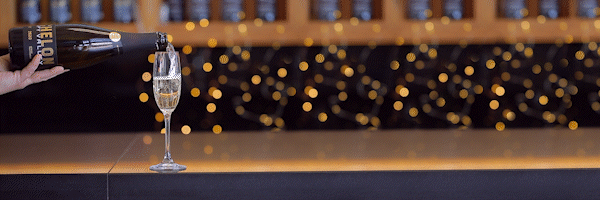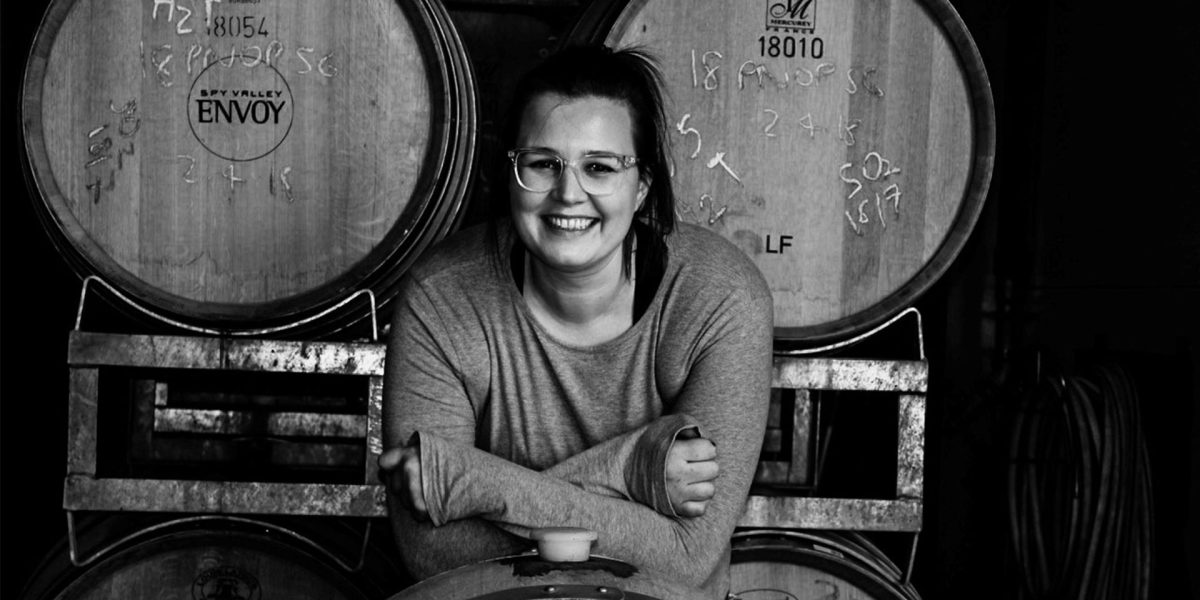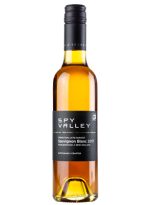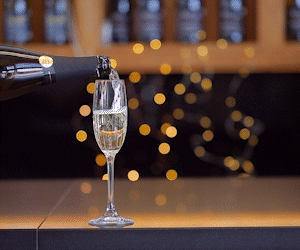Vines and Vision: Emily Gaspard-Clark on Winemaking and Innovation
As the Winemaker for Spy Valley, Emily Gaspard-Clark has continued a legacy of innovative winemaking techniques and a deep respect for the terroir. In 2019, Emily’s talents were recognised nationally when she clinched the prestigious title of Tonnellerie de Mercurey Young Winemaker of the Year. This accolade not only celebrated her skill but also heralded her as a leading voice of the next generation of winemakers. Today, Emily continues to influence the industry, not only by crafting award-winning wines but also by mentoring young talent through her involvement with the competition’s committees both regionally and nationally.
Emily shares her approach to winemaking, her insights into the evolving landscape of wine production, and her vision for the future of Spy Valley and the wider wine community.
How did winning the Tonnellerie de Mercurey Young Winemaker of the Year award in 2019 influence your career trajectory?
The Tonnellerie de Mercurey Young Winemaker competition has opened many doors for me in the last few years. I have been very lucky, not just in winning the competition but also being involved with the committee both regionally and nationally to help other young winemakers grow their careers.
The competition helped me gain confidence and understand what my strengths and weaknesses were so I could continue to grow, I credit the competition with helping to accelerate my career here at Spy.
What was the catalyst for you to get into the industry?
Having always been interested in science, initially I was considering food science, until my dad took me along to a careers evening in my last year of high school and I found out about the Viticulture and Oenology course at Lincoln University. The practical and scientific aspects are really what drew me in and after completing my first few harvests I knew it was the right choice.
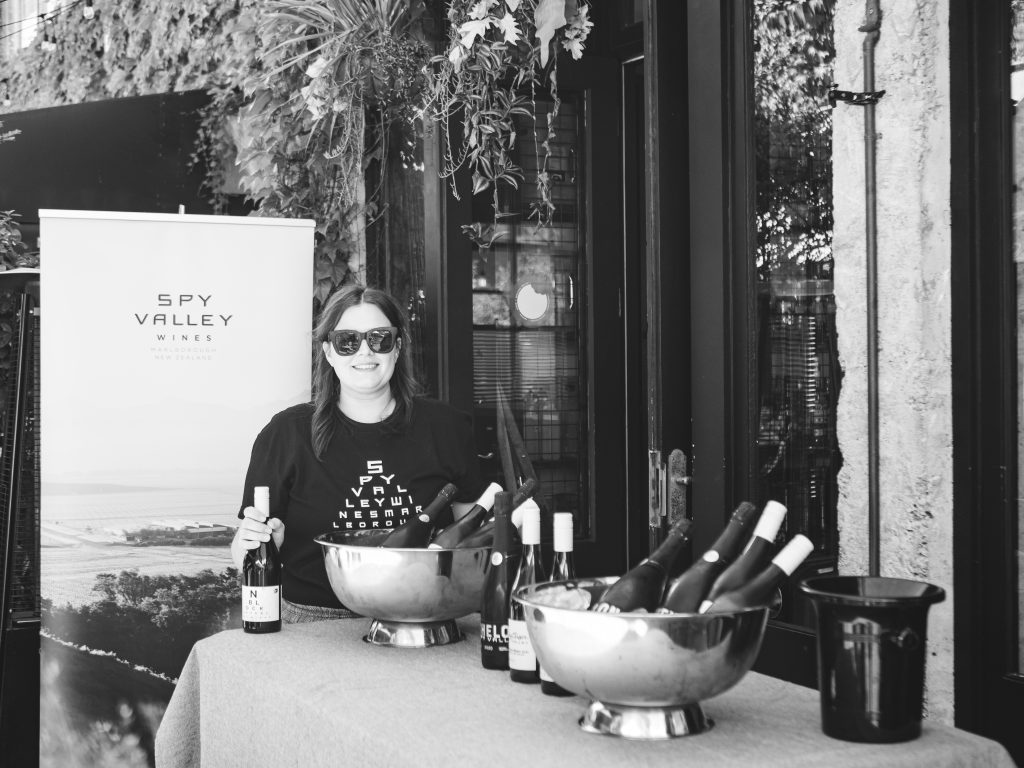
Can you describe how you balance the creative and scientific aspects of winemaking?
Ultimately, it comes down to taste and getting creative with what yeasts we use or how we handle certain parcels of grapes, but the science behind what we are doing is important to understanding how to get those great flavours and balance. What yeast brings what different character to a wine, what temperature is the optimum to ferment at, what level of acid and sugar will give us the wine that we are trying to create and what we need to do to ensure that the wine we are tasting and creating makes it to the consumer in a stable condition. All while having fun and being creative in the different techniques we use.
What do you find most rewarding about working with the diverse range of varietals at Spy Valley, and do you have a personal favourite to work with?
Every varietal is different and comes with its own fun challenges. It allows our team to play around with different winemaking techniques and allows us to find out what works best with our fruit. I’m loving working with Gewurztraminer at the moment, it can be challenging to get the right balance of flavour, sugar, alcohol and bitterness. But my favourite varietal to work with changes all the time!
How do you incorporate sustainability practices into your winemaking process at Spy Valley, and what importance does this hold for you personally and professionally?
Our team is very passionate about sustainability from vineyard through to bottle. We try to cut back on power and water usage where we can and have regular sustainability initiatives that our team can work on.
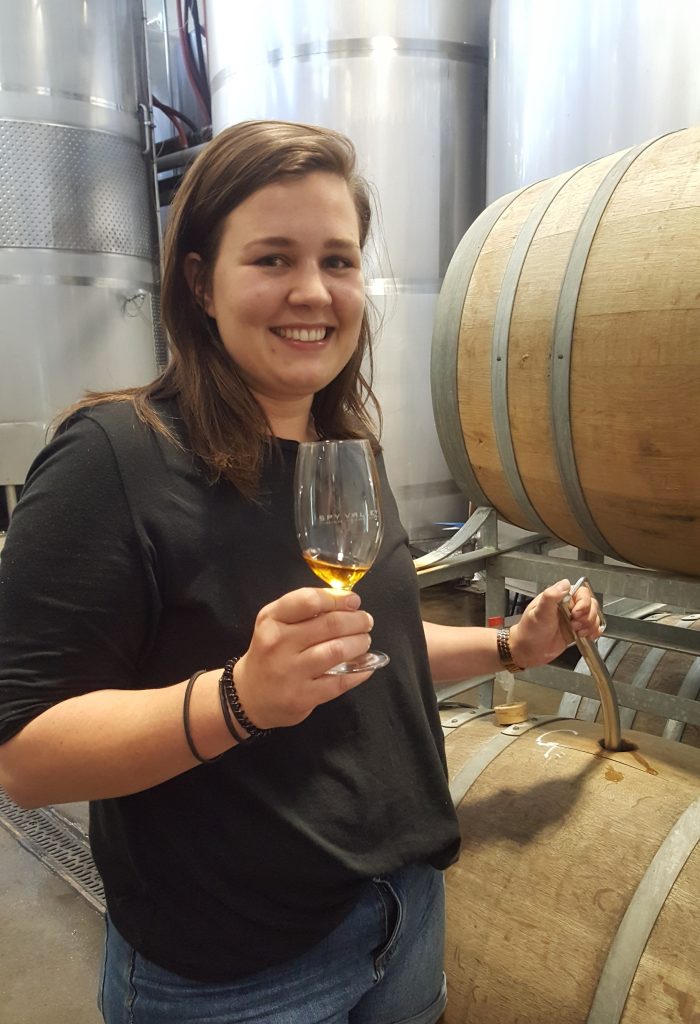
Could you share a challenging moment or vintage you’ve experienced at Spy Valley and how you navigated it?
Every vintage has its own challenges, we are lucky now to have an experienced and hard-working team and we work together to ensure that we make it through vintage still smiling on the other side. It’s all about teamwork and communication.
As someone who has had experience in various wine regions around the world, how do you think the Waihopai Valley’s terroir uniquely influences the character of Spy Valley wines?
Brian and Jan Johnson were told that the land that is now the Spy Valley vineyard was too dry and hard to grow grapes on and look at us now 30 years on from the original plantings. Every different region around the world and every different climate brings its own unique character to the wines. For our vineyard, here in the Waihopai, we get plenty of minerality, some salinity and great ripeness. We have different terraces of clay and silt loam so that all our varietals are growing in the optimum spot – our Pinot Noir is sitting on the upper clay terraces, while our Sauvignon Blanc is down lower on the stonier soils. Due to our bony soils, we don’t get the canopy size in our Sauvignon Blanc that they might get in parts of the Wairau Valley, hence we don’t get the intense thiols and our Sauvignon from the Waihopai is a little more subdued and elegant.
Winning awards across multiple vintages, as seen with Spy Valley wines, indicates consistency in quality. What’s your strategy to maintain and enhance this consistency year after year?
It is all about getting the best fruit into the winery. We are lucky at Spy to have had our Viticulturist Adam working at Spy for over 20 years, so he knows every block and how to treat each batch of fruit so that we get the best quality fruit arriving in the winery. Good quality fruit means it is much easier to make good quality wine. It is all about letting the fruit shine and building that understanding of what works best with which batches of fruit and work with the changing seasons to ensure we maintain that consistency. Our team in the winery, in turn, now also has experience with each batch of fruit we get so we know what works best with each of those parcels.
What has been the most surprising or unexpected aspect of your winemaking career thus far?
Vintage variation, I feel like before you enter the industry you don’t realise how much work goes into ensuring that the wines are consistent year on year and how much harder that is to achieve when every year is so different
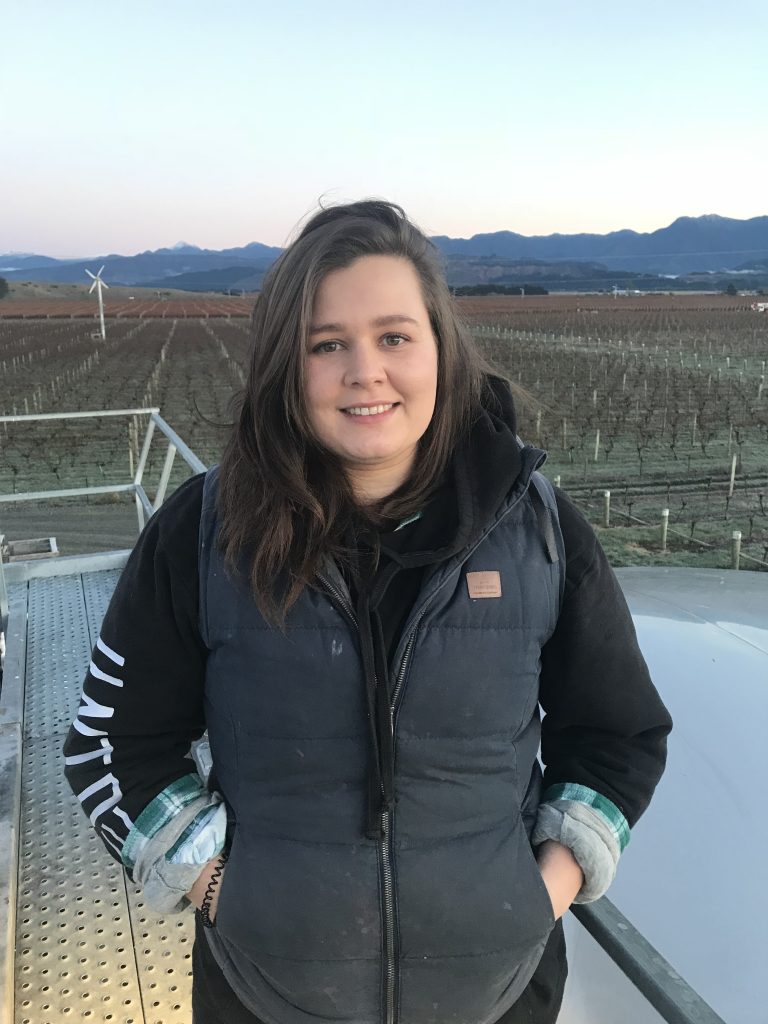
What advice would you give to aspiring winemakers, especially women entering the field?
Be willing to take any opportunity offered to you. If you aren’t finding a job exactly where you want to be, look further, and build your experience, but remember, It’s important to have a full understanding of the process before taking the next step so don’t rush it. For women, speak up, don’t be afraid to share your ideas!
What is your go-to wine at the moment?
I’ve always been a huge Riesling and Chardonnay fan. Currently, I’m loving our 2017 Envoy Chardonnay.
What are some of your favourite food and wine pairings?
Riesling and dumplings, pinot and pizza or chardonnay and mushroom pasta!
What are your hopes for the future, both for Spy Valley and the wine industry as a whole?
I hope we as an industry can continue to improve the quality and sustainability of our wine and maintain Marlborough’s position as a premium wine-producing region on a global scale. At Spy Valley, I hope that we continue to have fun and create great wines in a sustainable way.
